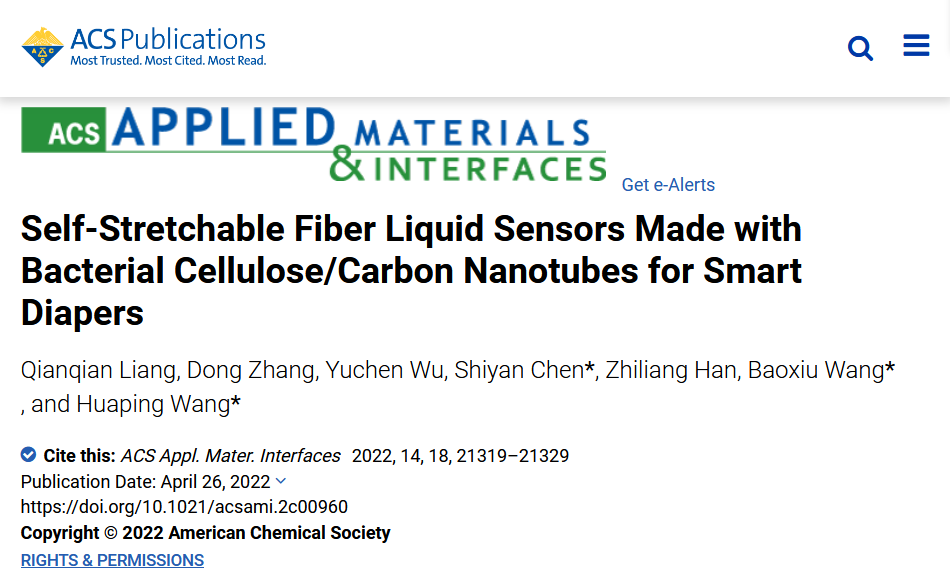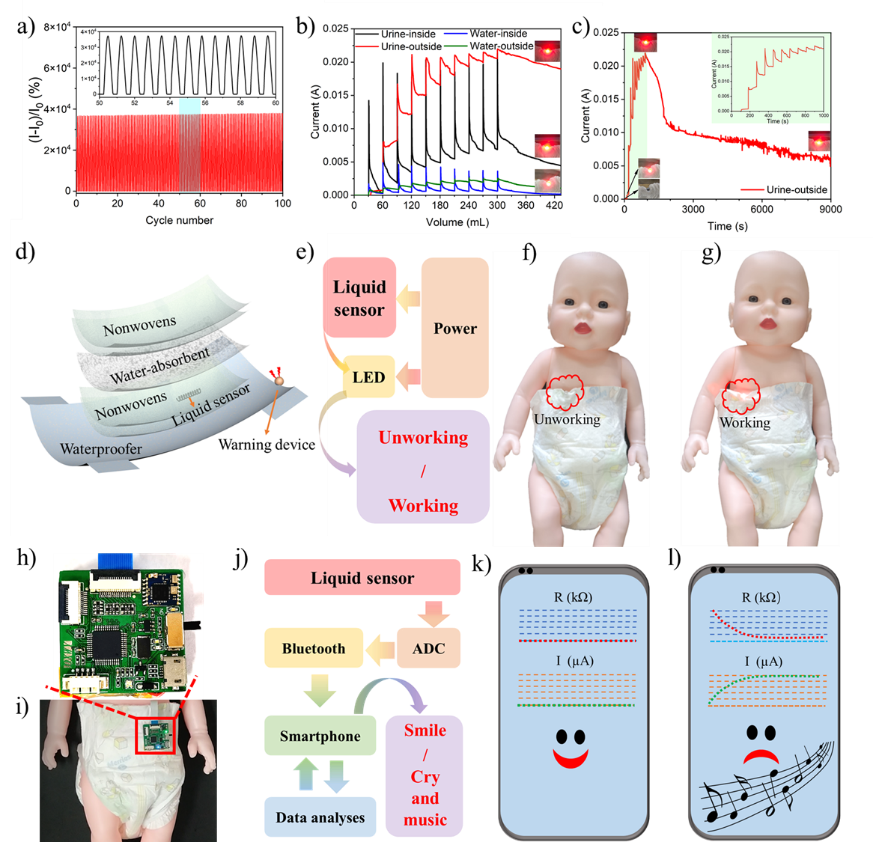DHU Professor Wang Huaping’s research team recently developed a stretchable fiber-based liquid sensor for “smart diapers”, which can monitor the status of diapers in real-time and send active alerts. The research result “Self-Stretchable Fiber Liquid Sensors Made with Bacterial Cellulose/Carbon Nanotubes for Smart Diapers” was published in ACS Appl. Mater. Interfaces. The article’s first author is Liang Qianqian, a Ph.D. student in class 2020 of the College of Materials Science and Engineering, Donghua University.

This BC/CNT (BCT) fiber sensor shows a high stretch rate of over 1000%, and the sensing performance is almost unaffected by washing, stretching or knotting deformation. Combining this sensor with a conventional diaper or measuring tape produces a smart diaper or water level detector that can respond quickly, detect and monitor the real-time status of the smart diaper or water level via an alarm device or cell phone. In conclusion, the stretchability and continuous preparability of self-stretching BCT composite spiral fibers will provide a broad platform for developing wearable sensors (such as smart diapers, water level detectors, etc.) that can be applied in daily life.

Prof. Wang’s team researches bacterial cellulose-based intelligent fibers and uses them for sensors, supercapacitors, etc. In recent years, the team has produced high-strength bacterial cellulose and bacterial cellulose fibers with spiral structures and explored their composite spinning with carbon nanotubes and other active materials for supercapacitors. The above research results have been published in ACS Appl. Mater. Interfaces, Nanoscale, Desalination, ACS Nano, Chemical Engineering Journal, Electrochimica Acta and other internationally renowned journals. The team will further explore the development and research of bacterial cellulose intelligence in the future.


